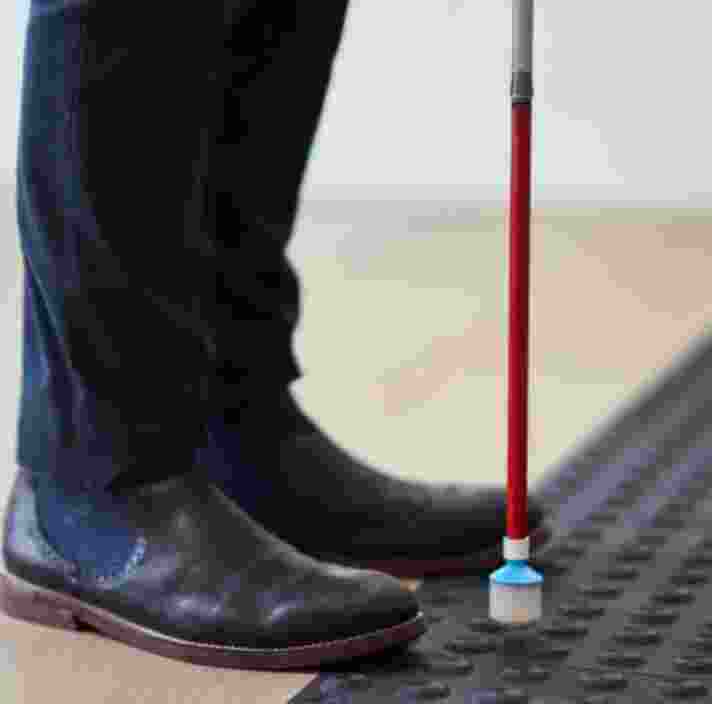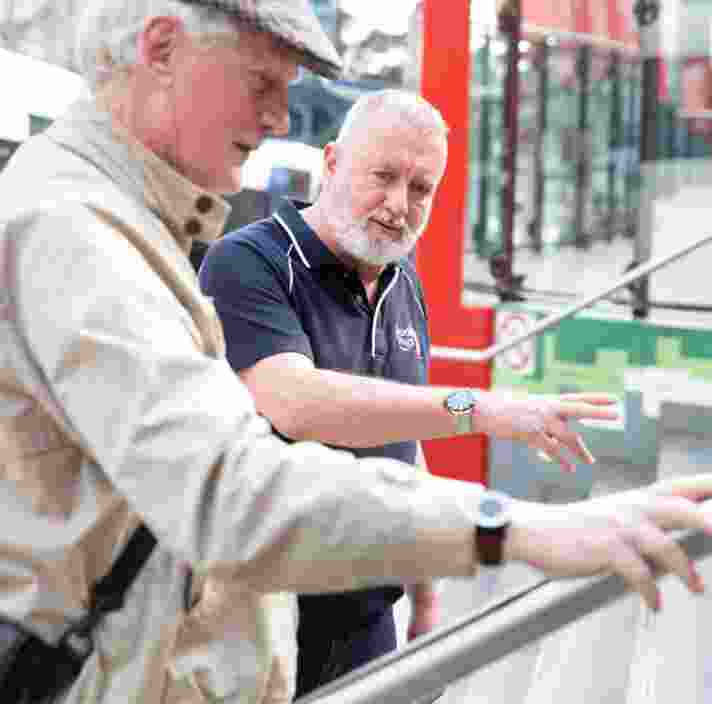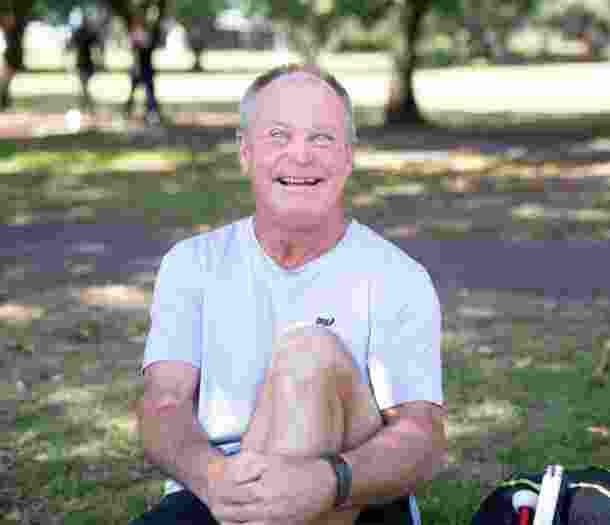On this page:
What is Brain-Based Vision Orientation and Mobility?
The human brain plays a major role in processing what we see. It also determines how we understand visual information in the world around us. As a result, a neurological condition or brain-based event, like a stroke, head trauma, nerve damage, or tumour can change a person’s vision and affect the way you move through the world. Regardless of how a brain-based event happens and what type of brain-based vision condition a person acquired, readjusting to daily life with a change in vision can be a challenge.
Brain-Based Vision Services can assist you to reduce the challenges of adjusting to life by equipping you with valuable compensatory strategies for-day-to-day living at home and in the community. To ensure you can stay as independent as possible and work towards your goals, our Brain-Based trained Orientation and Mobility Specialists can assist you to adjust to the new challenges in life.

What sort of skills can I learn through Brain-Based Vision Orientation and Mobility?
Your Brain-Based Vision Orientation and Mobility could include:
- Improving your understanding of your change in vision and how it might impact on daily tasks
- Learning scanning techniques to make the most of your remaining vision
- Learning about other compensatory strategies to assist you in dealing with a change in vision
- Applying your skills in different settings, from the hospital or your home to getting out into the community
- Learning a new way to cross the road safely
- Techniques to use public transport with confidence
- Planning and problem-solving skills you can use while travelling independently
- Learning to use technology to make tasks easier.
What does service delivery involve?
Every brain-based event is different.
Our specialised information gathering and intervention is tailored to suit your needs and ensure you can stay as independent as possible. The Brain-Based Vision trained Orientation and Mobility Specialists will work with you towards your goals and assist you to adjust to the new situation.
A comprehensive Brain-Based Vision and Orientation and Mobility assessment helps us to understand your unique needs and goals in before the intervention is planned, and the training begins. Once we have a detailed understanding of your situation and the neurorehabilitation services you currently receive, we can work towards achieving your goals together.
The Brain Based Vision Orientation and Mobility Specialists can also connect you with other specialists in the community, like Neuropsychologists, Physiotherapists, Counsellors, Optometrists.
Regardless of who’s involved in your team or the goals you’re working towards, training will take place in the environment that best suits you. It could be in a hospital, your home, or out in the community, depending on your requirements.
What funding can I use to receive Brain-Based Vision Services?
Guide Dogs is a registered NDIS provider and My Aged Care provider. This means many people can access Brain-Based Vision Services through their NDIS plan or Home Care package. We also work closely with iCare. Find out more about funding programs and supports.
We understand that sometimes people who need services may not be eligible to receive government funding.
If you have low vision or blindness and you do not have access to external funding, we will support you. We will understand your goals and develop a plan to achieve them, using funding provided by generous donations from the community.

How do I find out further information?
We welcome referrals and enquiries from individuals, families, health professionals and community organisations.
To find further information about our Brain Based Vision Orientation and Mobility Services, you can:
Enquire about this service
Start your journey towards greater independence today
Ready to continue?
Seems like you have filled this form earlier. Let’s pick up where you left off.

